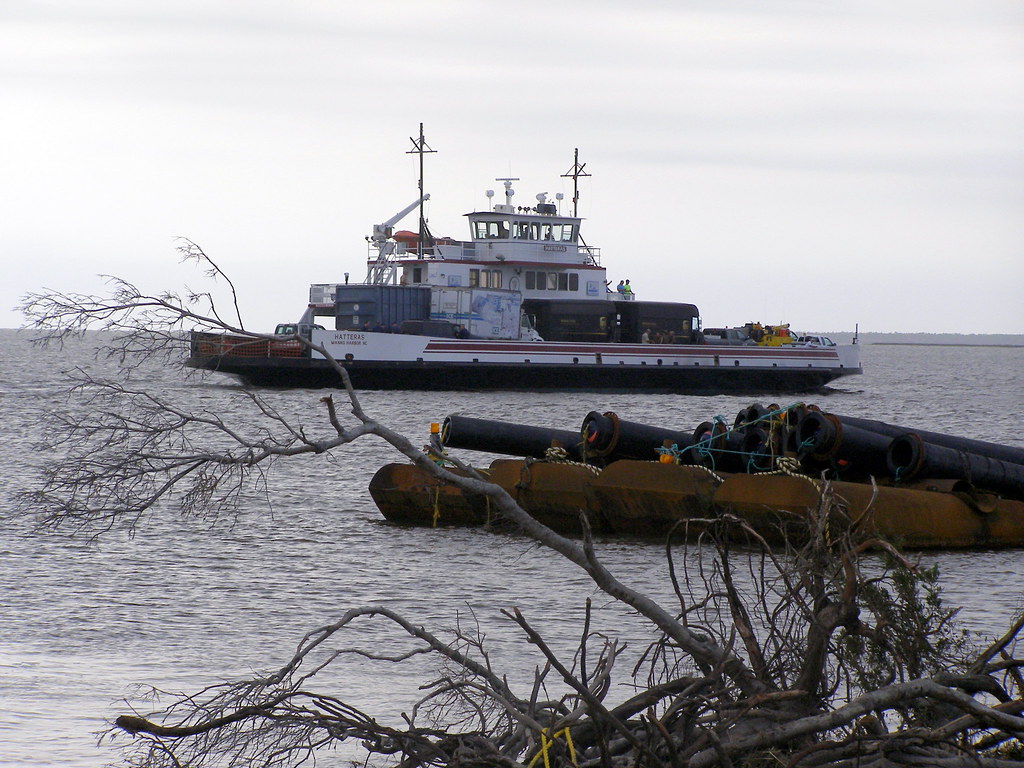State Division of Marine Fisheries May Disappear By KIRK ROSS Coastal Review Online
For the state’s Division of Marine Fisheries, this was already shaping up to be a particularly busy summer.
A new sea turtle protection plan is in the works. There’s a heated, ongoing debate between the commercial and recreational fishing industries over a proposed bill for gamefish status for red drum, striped bass and sea trout. Then on April 6, the National Marine Fisheries Service added Atlantic sturgeon to the federal endangered species list, possibly triggering an extensive review and rewrite of the host of local, state, regional and federal rules the division oversees.
With all that on its plate and working under a $3.2 million cut in its annual appropriation, the division is now facing another major undertaking.
At the Marine Fisheries Commission’s quarterly meeting today and Friday, May 10 and 11, in Pine Knoll Shores, Louis Daniel, the division’s director, will brief commission members on a set of proposed bills approved by the N.C. General Assembly’s Marine Fisheries Committee.
At the top of the committee’s list is a full review of the division’s operations — everything from enforcement to research — in preparation for a possible merger with the state’s Wildlife Resources Commission by July 2013.
Proposed legislation in a report from the fisheries committee mandates a joint study by the division and the N.C. Department of Agriculture of the “reorganization of the fish and wildlife management in this state.”
That the bill mandated a study rather than the merger was a compromise in itself, after several members of the committee objected to moving ahead without a hard look at the consequences. But the language in the draft legislation is clear as to the study’s mission:
“It is the intent of the General Assembly to gather information on abolishing the current Marine Fisheries Commission, transferring its powers and duties to the Wildlife Resources Commission, and merging all powers, duties, functions, and personnel of the Division of Marine Fisheries of the Department of Environment and Natural Resources and the Wildlife Resources Commission into a new Fish and Wildlife Resources Commission effective July 14, 2013.”
For Rob Bizzell, the chairman of the Marine Fisheries Commission, the study itself will be a difficult enough task.
“It’s huge, huge undertaking just to study it,” Bizzell said, “much less trying to implement it.”
Bizzell said if the bill passes, the division will do its best to drill down the effects of the change, but given that division and the wildlife commission involve such different disciplines, he said he’s already concerned that the legislature may not see the kind of economy of scale savings anticipated.
“On paper it looks like you throw them together, but it’s not that easy,” he said.
The division is comprised of nine sections that collectively are responsible for the stewardship of the state’s marine and estuarine resources. Its jurisdiction encompasses all coastal waters and extends to three miles offshore. Agency policies are established by the nine-member Marine Fisheries Commission and the Secretary of the Department of Environment and Natural Resources.
A marine fisheries division has a long history as a separate agency of state government. The division can trace its roots back as early as 1822, when the legislature imposed gear restrictions on oyster harvest. That was later followed by separate fish and shellfish commissions, which were combined in 1915 to form a commercial regulatory body. In 1965, the scope of the commission was expanded to include regulatory authority over recreational fishing activities in coastal waters.
Bizzell emphasized the same points brought up by Daniel during a committee hearing in March at which the director raised concerns over trying to merge enforcement operations along with another proposal to move fish dealer inspections to the Department of Agriculture.
Daniel strongly warned against shifting responsibility for inspecting fish houses. There are more than 700 fish dealers in the state, he said, and keeping track of the catch means constant contact with them.
“We have a tremendous amount of interactions with fish dealers,” he told the committee.
Information from the dealers, he said, is the state’s main method of managing fish quotas, which is essential to complying with Atlantic fisheries regulations and quotas.
“It has the potential to have extraordinary consequences to our industry,” he said.
Sen. Don East, R-Surry, the main advocate of moving the fish dealer inspections, said he and Steve Troxler, a Republican who is secretary of Agriculture, had been approached by a group of fishermen about the idea of moving the responsibility away from the division since it’s under the umbrella of the Department of Environment and Natural Resources, or DENR.
The intent, he said at the March hearing was to get inspections “out from under the heavy hand of DENR — the premier regulator in the state.”
This would not be the first major shift under the new leadership in the legislature. The General Assembly initiated a restructuring plan last year that shifted the state’s Division of Forestry from DENR to Agriculture.
Bizzell said he’s worried that the moves to split the division up and merge most of it with wildlife resources are being done in haste.
There may be some savings in administration, Bizzell said, but in enforcement and research, the two agencies are vastly different organizations. It’s still not clear, he said, why the legislature wants to make a shift.
“I can’t quite figure out why everybody is so hot to try this merger,” he said. “I wish I had a little more feel for the desired outcome. I just don’t understand what it’s supposed to accomplish.”
Other bills approved by the Marine Fisheries Committee that could be taken up in the short session include:
• A study bill on coastal fishing and boating license fees;
• A prohibition on menhaden fishing using a purse seine net aimed at Omega Protein’s reduction fishery in Virginia;
• The creation of a new Joint Legislative Commission on Fish and Wildlife that would replace the Marine Fisheries Committee and the Joint Legislative Commission on Seafood and Aquaculture with oversight over the fisheries division and wildlife resources.
(This story is provided courtesy of Coastal Review Online, the coastal news and features service of the N.C. Coastal Federation. You can read other stories about the N.C. coast at www.nccoast.org.)




























